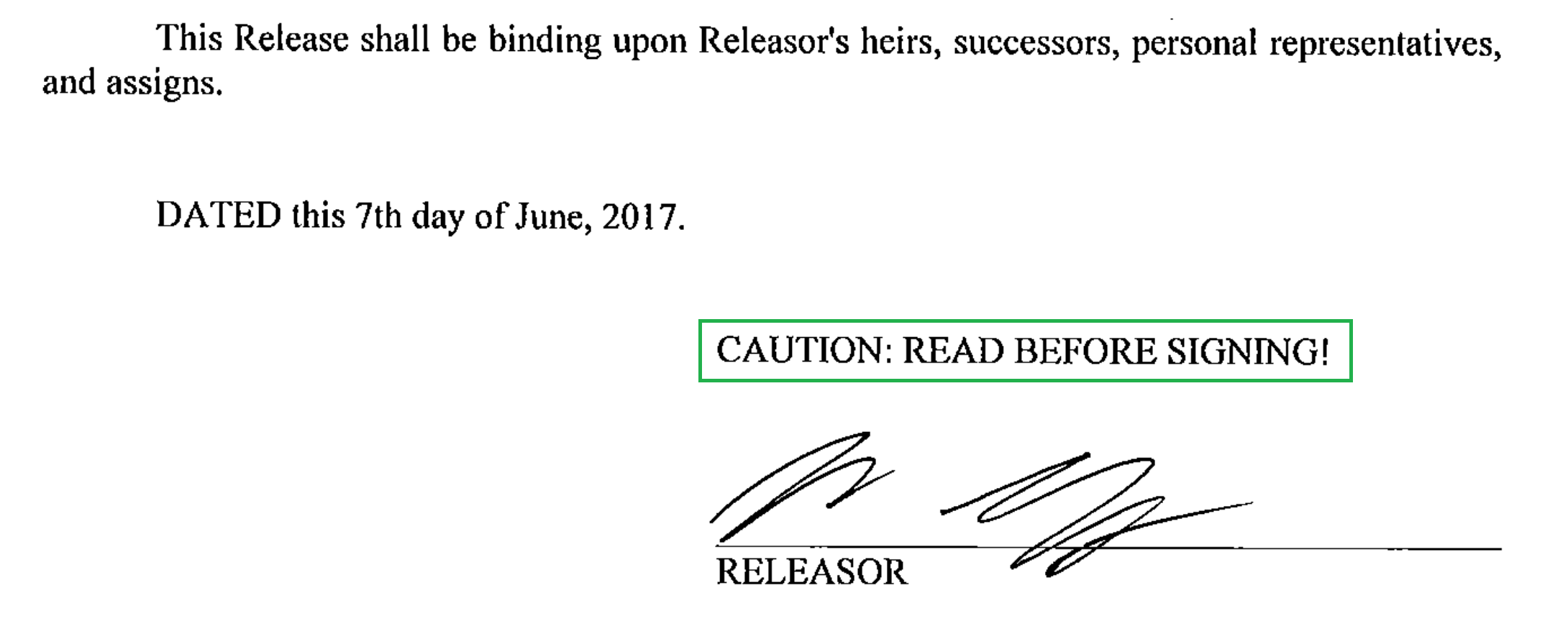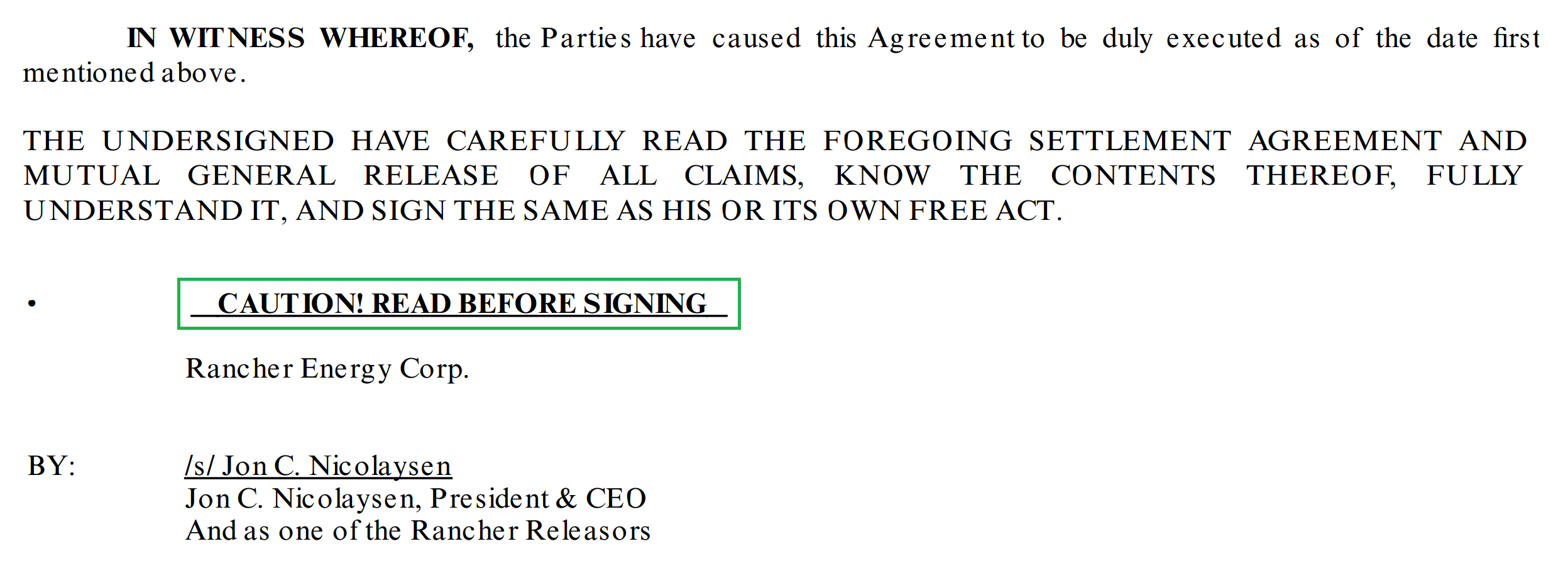Yesterday @WestMichiganLaw sent my way on Twitter the release by journalist Ben Jacobs in favor of the Republican who assaulted him. (PDF here.)
What caught my eye was the notation “CAUTION: READ BEFORE SIGNING!” above the signature block (highlighting added in this image and the others in this post):
(Bonus: the half-witted successors-and-assigns language. You’re welcome.)
The read this notation got me wondering whether I’d find something comparable in business contracts. And I did. Here’s an extract of a settlement agreement:
In this example, the read this notation comes after a sentence that says exactly the same thing, although more conventionally.
You also see this notation in agreements between a company and an employee, whether it’s an employment agreement or a separation agreement.
So I guess I’ll have to add to the fourth edition of MSCD something about signature-block notations urging the parties to read the contract. I guess they’re unobjectionable if you’re dealing with an individual, in the context of employment or a release. I’m not sure I’d bother for a contract between companies.
Here’s another example of a more traditional read this provision (this example is from a loan modification agreement):
Generally, how necessary do you think it is to tell parties to a business contract that it would be a good idea to read the contract?
[Updated 10 June 2017: On reflection, I’ve decided that the more traditional read this provision is ridiculous. Someone would see it only if they’re reading the contract, so you’re preaching to the converted.]




I might be inclined to include this sort of thing in a context where procedural unconscionability might be an issue. Otherwise, the duty to read is pretty powerful.
What do you mean by “procedural unconscionability”?
Probably a consumer contract thing. https://definitions.uslegal.com/p/procedural-unconscionability/
For the defense of unconscionability, many states require a showing of defects in the contracting process (procedural unconscionability) in addition to unfair terms.
Some business-to-business transactions (and mass transactions by particular companies) are with small businesses frequently owned, whether as proprietorships or LLCs, by people not likely to be highly educated or sophisticated (think corner convenience stores). I remember working with a client that frequently dealt with counter-parties like that, and it felt that treating them as if they were individuals was a precaution worth taking. I don’t remember if this client had a “read this” caution specifically, but there was a lot of certifying by the counter-party woven into the document.
More to the point is whether clauses like that would have any effect if the counter-party challenged the contract. My guess is that hard-nosed judges in hard-nosed jurisdictions would uphold them, and more solicitous judges in more solicitous jurisdictions wouldn’t. Or, more charitably, it might depend on what the challenged clause was, whether it was conspicuous, whether the party seeking to uphold it pointed it out or glossed over it, and so on.
I think it’s also wise to include “IMPORTANT: READ THE NOTATION BELOW” above the “CAUTION: READ BEFORE SIGNING”.
:-)
A few comments:
1/ The ‘read this’ caution raises the question of who is barking out this command? In a one-party document, it’s a ‘note to self’. In a multi-party contract, are the parties barking commands at one another?
2/ The bald command (banned for not belonging to any category of contract language) is not the same as language of recommendation plus language of declaration: ‘each party recommends that each other party read this agreement and each party states that it has done so’. This strikes me as silly, but maybe others think it simple prudence.
3/ These provisions are akin to ‘benefit of counsel’ provisions like ‘each party states that it has had ample opportunity to consult legal counsel of its choosing concerning this agreement and has actually done so or chosen not to do so but to be bound as if it had done so’. Silly or prudent?
4/ Believing with Ken that ALLCAPPING reduces rather than increases readability, I would use it when applicable law specifically requires it, but not when the law merely requires conspicuity, which allcapping reduces. Why tee up a MEGO defense? (My Eyes Glazed Over.)
Regarding you point 2/, it’s an interesting instance of the imperative.